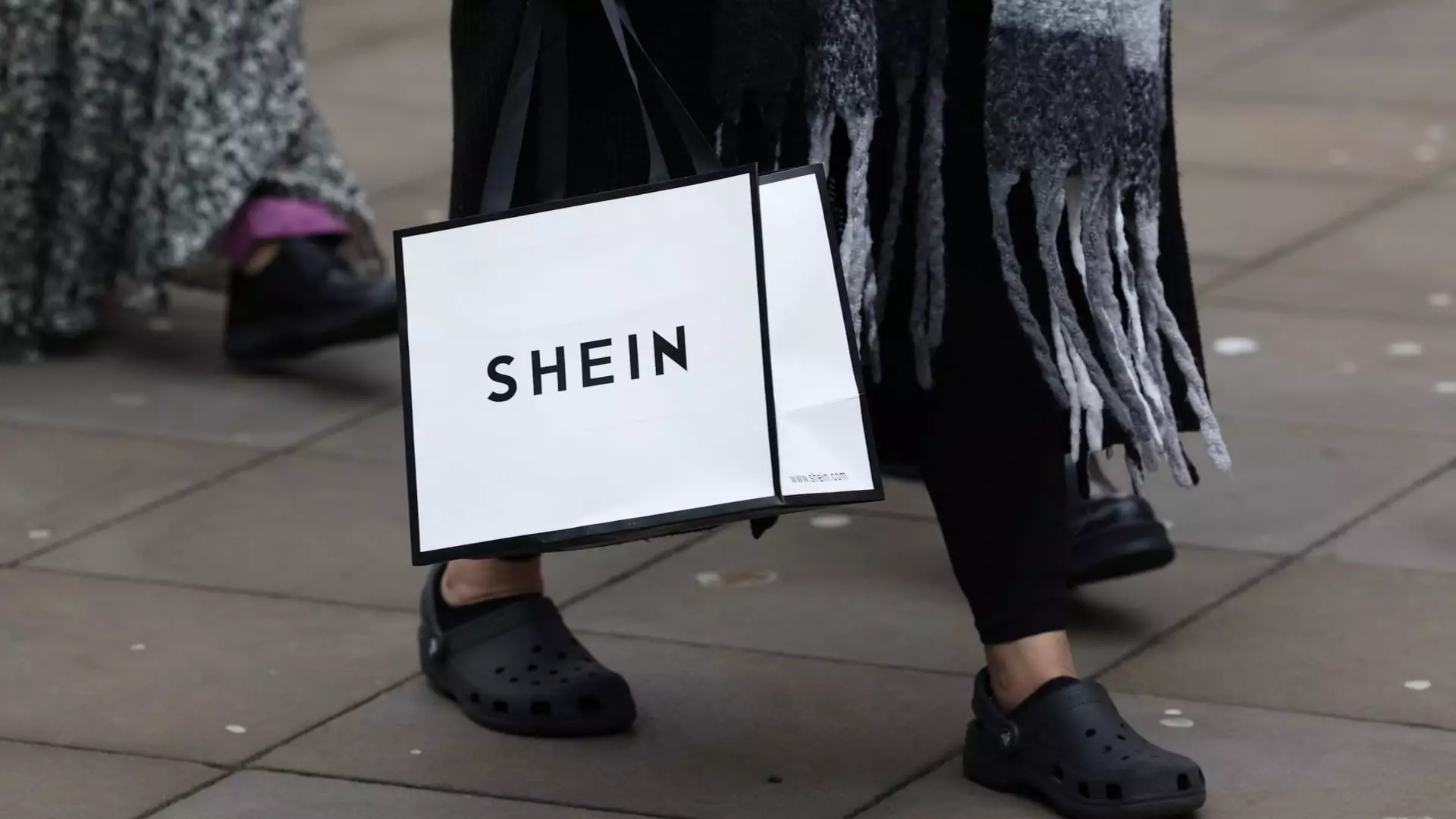As Shein navigates the complex landscape of fast fashion and public perception, the company embarks on a proactive strategy to bolster its reputation, especially with plans to pursue a public listing in London. This renewed charm offensive comes in the wake of a recent product safety recall, raising eyebrows about the integrity of its supply chain and the potential risks associated with its products. As the fast-fashion retailer outlines various initiatives aimed at improving safety and sustainability, the question remains whether these efforts will be sufficient to quell the mounting criticisms and concerns surrounding its operations.
In a recent press release, Shein detailed a series of measures it is implementing to ensure product safety following its first U.S. safety recall in two years. The company disclosed that it conducted over 2 million safety tests in the past year, partnering with reputable testing organizations such as Bureau Veritas and Intertek. This move aims to highlight Shein’s commitment to meeting industry standards, particularly for a wide range of products including toys, medical devices, and electronics.
The context behind this surge in safety testing is crucial; just last week, Shein had to recall more than 300 hair dryer brushes due to electrocution risks. Although no injuries were reported, the recall certainly underscores the importance of rigorous safety protocols in a market often scrutinized for its lack of accountability. By essentially taking a proactive approach to testing, Shein differentiates itself from competitors, particularly in the realm of third-party vendors, where it has set a higher bar by requiring documentation and testing for all products listed on its marketplace. This unique testing strategy could potentially serve as a model for the industry and foster greater consumer trust.
Simultaneously, Shein made headlines with its announcement of a new nonprofit foundation focused on sustainability initiatives aimed at reducing environmental impact. This is a timely initiative, as fast fashion faces increasing scrutiny for its contributions to ecological degradation. By publicly committing to sustainability, Shein seeks to gain favor not just with consumers, but also lawmakers in the U.K., as it gears up for its IPO. However, the challenge lies in translating these declarations into tangible actions and measurable outcomes.
The brand’s sustainability efforts arrive at a critical juncture when public sentiment is increasingly favoring ethical consumerism. However, skepticism remains. Critics argue that the fast fashion business model—even with commendable sustainability pledges—can inherently conflict with genuine ethical practices. The true test for Shein will be its ability to substantiate its claims through meaningful changes rather than mere marketing gimmicks.
Transparency in supply chains has become a hot-button issue, especially for companies like Shein that operate on a global scale. During a recent parliamentary hearing, Shein’s legal representatives found themselves in hot water when pressed about the origin of their cotton and potential links to forced labor practices in Xinjiang, China. The reluctance to provide straightforward answers left lawmakers frustrated and concerned about the integrity of Shein’s supply chain.
This moment of contention illustrates a broader issue in fast fashion: maintaining an image of ethical responsibility while navigating complicated geopolitical landscapes. For Shein, the challenge going forward will be forthrightness in addressing allegations of forced labor and establishing a genuinely transparent supply chain. Without clear answers, consumers and lawmakers alike may continue to harbor doubts regarding the ethical implications of purchasing from the brand.
Public Perception and Future Prospects
As Shein works toward overcoming these significant hurdles, public perception remains a critical factor influencing its success. The company’s attempts to appease lawmakers and engage in socially responsible initiatives reflect a broader trend of businesses realizing the importance of positive public relations. However, past controversies threaten to overshadow these efforts.
Moreover, the fast-fashion industry has been characterized by rapid changes in consumer behavior, particularly among younger shoppers who make purchasing decisions based on brand ethics. As Shein vies for a successful IPO in the U.K., it must convince both investors and consumers that it can not only deliver trendy and affordable products, but also act responsibly and sustainably. The stakes are high, and the road to reconciliation with its past transgressions will demand genuine commitment and transparent efforts.
Shein’s current campaign to highlight safety and sustainability marks a significant step forward, yet the company’s future relies on its ability to confront past criticisms effectively. Whether it will succeed in transforming public opinion and market presence remains to be seen as it faces both internal and external challenges head-on.

